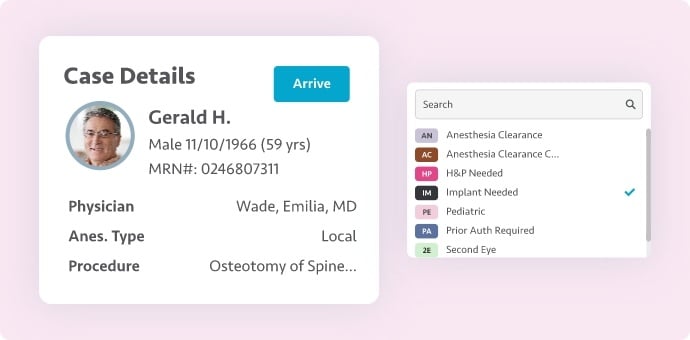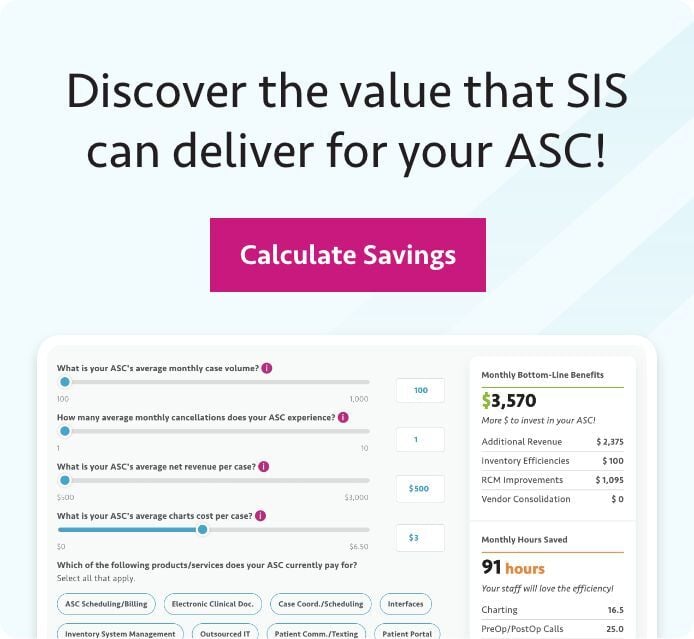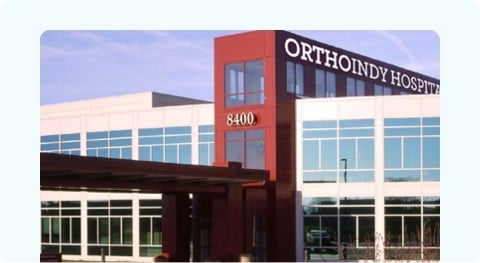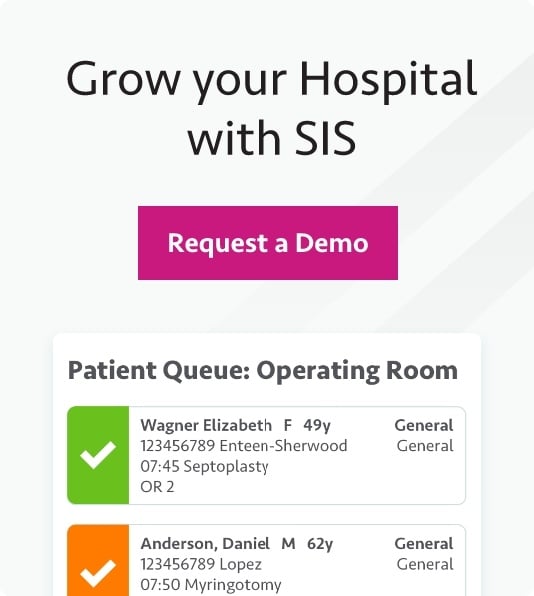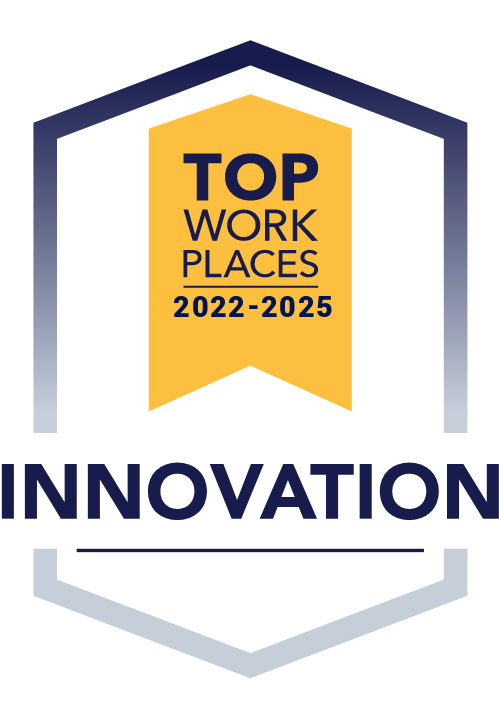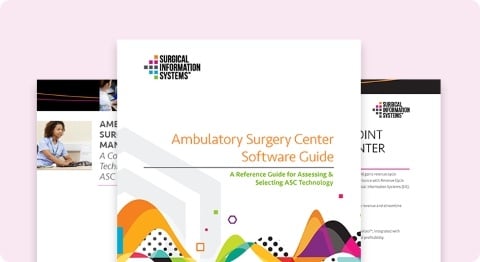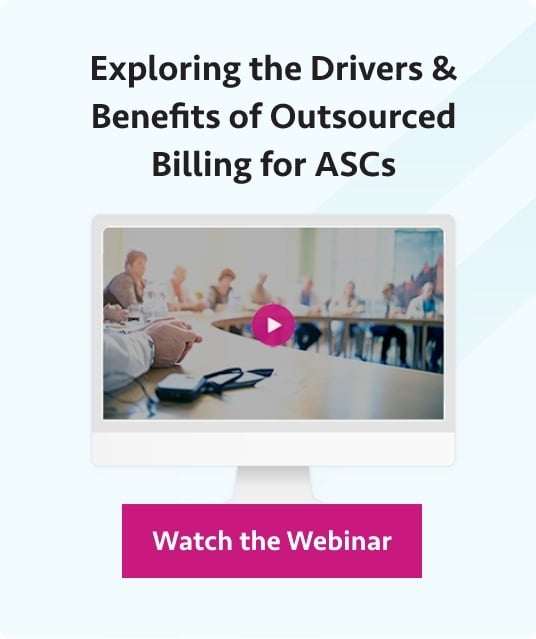
Q&A with Jho Outlaw and Jessica Nelson
Following a recent webinar presentation on "ASC Revenue Cycle 2019 Review and 2020 Forecast," Jho Outlaw, senior vice president of Revenue Cycle Services for SIS, and Jessica Nelson, director of Revenue Cycle Services for SIS, fielded questions from participants. Here are those questions, along with Outlaw's and Nelson's responses, summarized for readability.
Q: Total knee arthroplasty (TKA) was added to the Medicare ASC-payable list for 2020. Does Medicare include reimbursement for the implants used?
A: Medicare has what is called a "device-intensive indicator" that will be assigned to this code. While you will not receive separate reimbursement for the implants used in TKAs, Medicare will include the device portion with the overall TKA Medicare reimbursement rate.
Q: How do you recommend working with bundled payments when it comes to the claims process?
A: Bundled agreements can be complex. We recommend working very closely with the provider representative who helps you with the negotiation of that contract. We have seen payers want all of the service lines on the same claim, which is where you often see some of the complexity in the process. Verify with your provider representative whether you need to have the professional fee, anesthesia fee, and surgery fee all on one claim. Also, discuss how payments will be distributed to document expectations that are operationally feasible and hopefully allow for less complex billing practices.
Q: My physicians have been approached by a large healthcare system interested in a partnership. Is partnering with a hospital good or bad?
A: This is a difficult question to answer. Working for SIS, a service organization for ASCs, we have been through partnerships, such as mergers and acquisitions, many times. It's like any growth opportunity: There is a lot of change that typically occurs when such a transaction commences, and change can be difficult. How difficult often depends on the state of your business, which is why it's critical to understand your data and what's working and isn't working well. This information can help assist your physicians in making the decision of whether to proceed with a partnership.
Getting back to your question on whether a partnership is good or bad, the answer: It depends. Sometimes large healthcare entities can bring efficiencies that a smaller business could never accomplish on its own. Sometimes partnering with a larger healthcare entity can complicate processes that didn't need to be complicated. Your best bet is to obtain as clear of an understanding of your operations as possible by examining your data. This will help make sure a decision — and possible transition — is ultimately in your ASC's and its patients' best interests.
Q: I'm hearing that private equity is increasingly targeting ASCs. What is private equity?
A: In short, private equity is a private company that takes money and invests it in other entities in hopes of earning a profit on that investment. Most of the time the private equity firm is not going to be involved in day-to-day leadership of the organizations it invests in, but since its money is invested, it usually has representatives sit on boards of directors.
Where ASCs are often becoming involved in private equity investments is when they are part of a large physician group. If the group's physicians believe there is an opportunity to significantly grow the practice and its ancillaries, such as an ASC, they might go out into the market to seek potential investors. If the physician group accepts a private equity investment, this will change the dynamics of running the business. Not only does it usually bring an influx of cash that helps fuel growth and allow an organization to become bigger and more profitable, but it also introduces a new voice at board meetings that can carry a lot of weight.
Q: Which procedures do you see being attractive to medical tourists?
A: From what we've seen so far, total joints are very attractive to medical tourists. While some large, acute-care health systems have taken advantage of this trend for some time now, ASCs certainly can as well. What you would do is if you start a total knee program, for example, and become really efficient at performing high-quality TKAs at a low cost, you can come up with a cash price for patients from outside your market. This can include national and international patients. Consumers worldwide are increasingly researching their surgical options outside of their local market, trying to find the provider that will deliver the best outcome at the best price.
Years ago, medical tourism helped drive a lot of LASIK surgery to Mexico. People were going to Mexico to receive the surgery because the quality was good, and the price was inexpensive. ASCs are in a position to do the same with some of their procedures. We're just tapping into medical tourism in the United States and, more specifically, ASCs. I think total joints will help increase the momentum.




